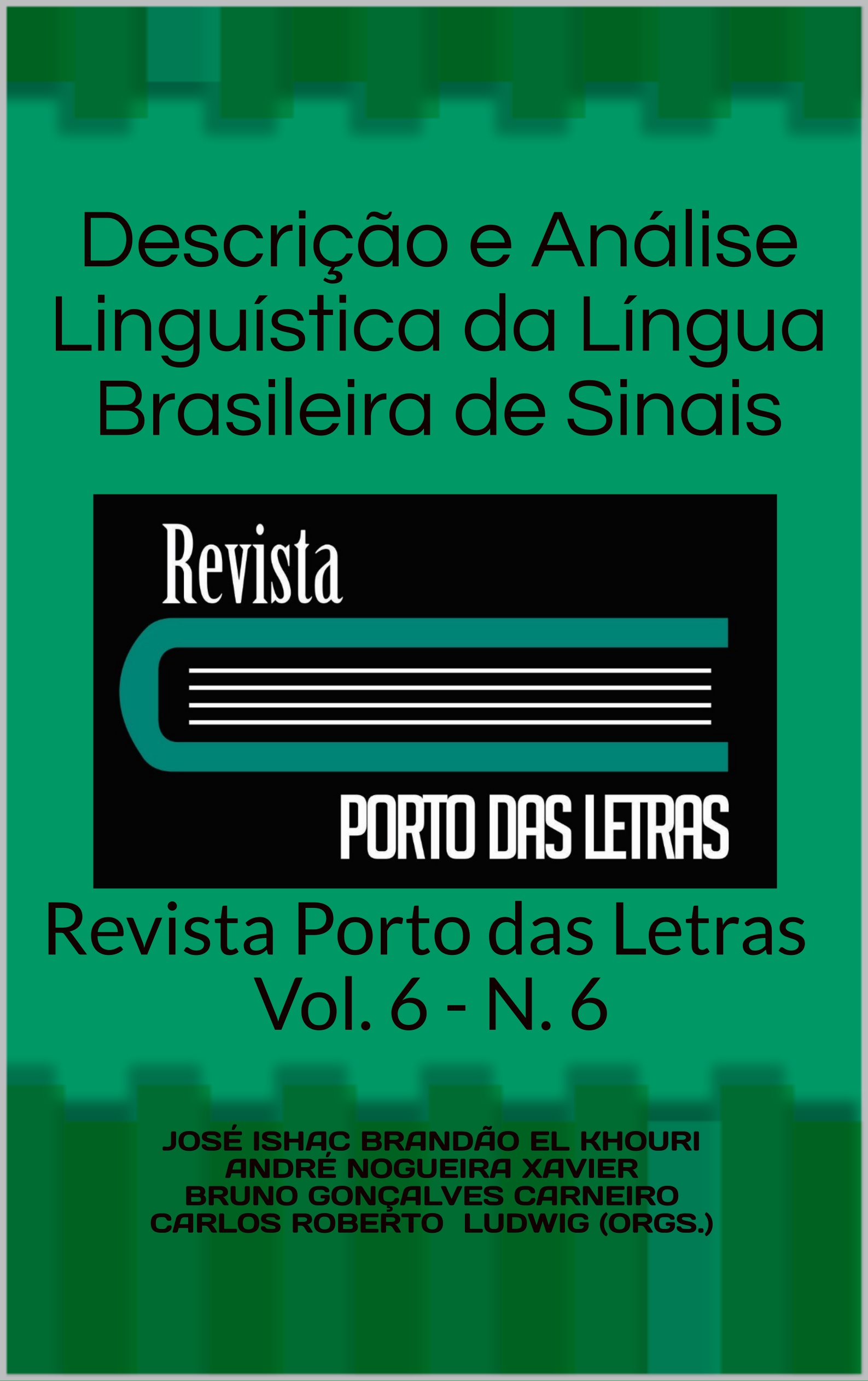Problematizando o núcleo da sílaba na Libras: movimento ou ponto de articulação?
Keywords:
Núcleo silábico; Libras, Parâmetros.Abstract
It is accepted in the literature that the parameter movement (M) is the nucleus of the syllable in sign languages. For Libras, the work of Cunha (2011) synthesizes this proposal well. On the other hand, Aguiar (2013) brings to the debate the possibility of the parameter Point of Articulation being considered the nucleus of the syllable in Libras. Based on these two works, an assessment of the proposals for the syllable nucleus in Libras is made. Some questions are raised about Aguiar's proposal (2013) taking into account the biasing use of ELiS (Escrita de Línguas de Sinais). The work is not a review of the literature, but seeks to highlight the most significant works on the theme. Finally, the possible motivations for choosing one or the other parameter to appear as the nucleus of the syllable in Libras are pointed out. One of the factors found to be determinant is the search for a parameter in the sign languages equivalent in the oral languages for the syllable nucleus. Some considerations are made about the need to think the syllable in sign languages for them and for themselves.
References
AGUIAR, T. C. Nova proposta de sílaba em Libras. 2013. 102p. Dissertação (Mestrado Letras e Linguística) – Universidade Federal de Goiás, 2013.
ARMSTRONG, D. F.; STOKOE, W.; WILCOX, S. E. Gesture and the Nature of Language. Cambridge: Cambridge University Press, 1995.
BARROS, M. E. ELiS – Escrita das línguas de sinais: Proposta teórica e verificação prática. 2008. 199 p. Tese (Doutorado em Linguística). Centro de Comunicação e Expressão, Universidade Federal de Santa Catarina, Florianópolis, 2008.
BRENTARI, D. A Prosodic Model of Sign Language Phonology. Massachussetts: MIT Press, 1998.
CUNHA, K. M. M. B. A estrutura silábica na língua brasileira de sinais. 2011. 138p. Dissertação (Mestrado em Estudos Linguísticos) – Universidade Federal de Goiás, 2011.
FERREIRA, L. Por uma gramática das línguas de sinais. Tempo Brasileiro. UFRJ. Rio de Janeiro, 2010.
HULST, H. van der. Units in the analysis of signs. Phonology, vol. 10, n. 2, 1993, p. 209-241.
JANTUNEN, T.; TAKKINEN, R. Syllable structure in sign languages. In: BRENTARI, D. Sign Languages. Cambridge: Cambridge University Press, 2010.
LIDDELL, S. K.; JOHNSON, R. E. American sign language: the phonological base. In: VALLI, C.; LUCAS, C.; MULROONEY, K. J. (Orgs.). Linguistics of American Sign Language: an introduction. 4 ed. Washington D. C.: Gallaudet University Press, 2005 [1984]. p. 280-319.
MEIER, Richard P. Why different, why the same? Explaining effects and non-effects of modality upon linguistics structure in sign and speech. In: MEIER, Richard P.; CORMIER, Kearsy; QUINTO-POZOS, David. Modality and structure in signed and spoken languages. Cambridge: Cambridge University Press, 2009.
QUADROS, R. M.; KARNOPP. Língua de Sinais Brasileira: Estudos Linguísticos. Porto Alegre: ARTMED, 2004.
SANDLER, W. Phonological representation of the sign: linearity and nonlinearity in American Sign Language. Publication in Language Sciences, 32. Holanda: Foris Publication, 1989.
STOKOE, W. Semantic Phonology. Sign Language Studies, vol. 1, n. 4, Special Issue, 1991, p. 434-441.
WILBUR, R. Sign Syllables. In: OOSTENDORP, M. van; EWEN, C.; HUME, E.; RICE, K. (Orgs.). The Blackwell Companion to Phonology. Londres: John Wiley & Sons, 2011.
XAVIER, A. N. Descrição fonético-fonológica dos sinais da Língua Brasileira de Sinais- Libras. 2006. 175p. Dissertação (Mestrado em Linguística) – Universidade de São Paulo, 2006.
Downloads
Published
How to Cite
Issue
Section
License
Os autores concordam com os termos da Declaração de Direito Autoral, que se aplicará a esta submissão caso seja publicada nesta revista (comentários ao editor podem ser incluídos a seguir).

